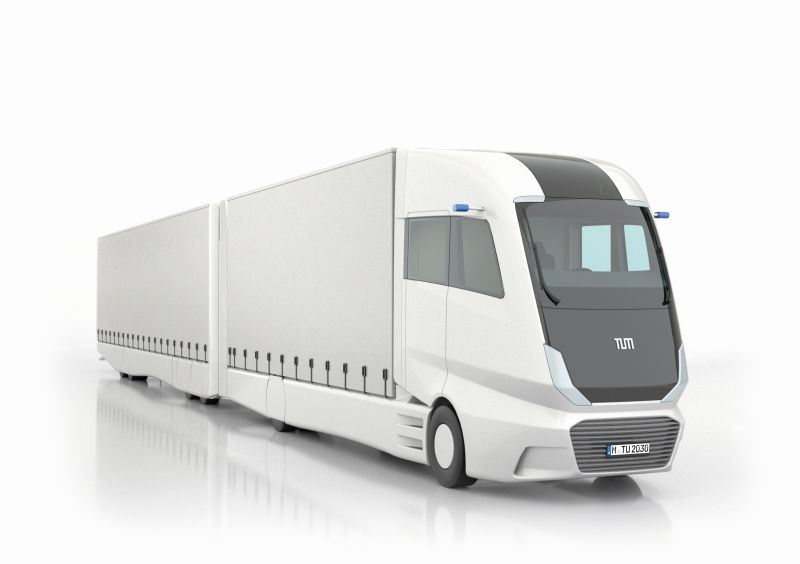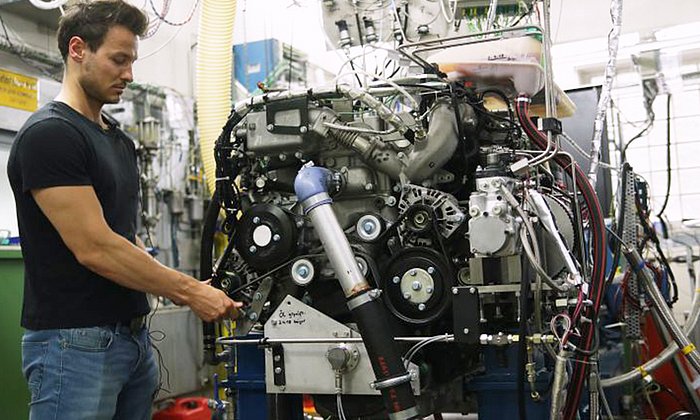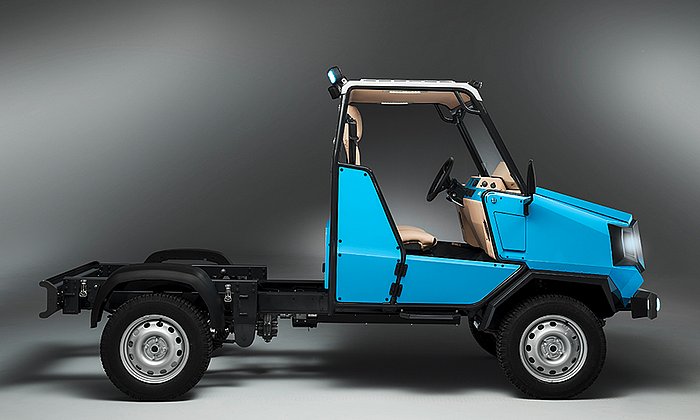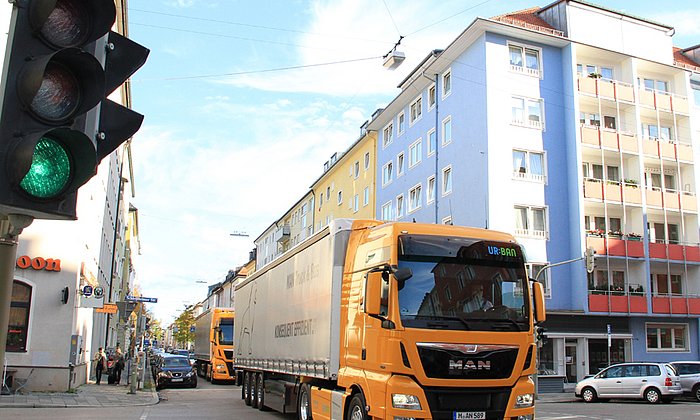"Truck2030": Technical University of Munich presents concept for efficient cargo transport
The truck of the future

According to a forecast by the German Federal Ministry of Transport and Digital Infrastructure, by 2030 the volume of truck cargo transport will have risen by 39 percent compared to 2010. This means efficient and environmentally friendly transport concepts are of continuing importance when it comes to reducing road traffic and emissions such as carbon dioxide, soot particles and nitrogen oxides.
In the project "Truck2030" scientists at TUM investigated all aspects of the truck of the future and will present their results at the IAA Commercial Vehicles trade show in Hanover. Here are the most important results in the areas of People, Transport and Logistics, Environment and Politics:
People
The researchers' concept is based on the assumption that the truck of the future will drive on the highway automatically. Drivers would then be able to invest the time saved in their own health. The driver's cabin presented by the team is equipped among other things with cables and pulleys which can be used for exercise, already familiar from the health club. A game-oriented aspect will be added in order to increase motivation, for example based on a virtual reward system.
Transport and Logistics
Long trucks with a length of 25.25 meters are ideal for efficient cargo transport. Here two LHV trucks can replace three normal-length trucks. This makes it possible to save fuel, resulting in benefits to the environment and the economy. And the total number of trucks on the road will also be reduced.
Apps that record cargo information using scan codes or NFC could save time and resources during loading and unloading.
Environment
The use of LHV trucks alone could cut CO2 emissions by 20 percent due to lower fuel consumption with the same cargo loads.
Using diesel plug-in hybrid drives could reduce CO2 emissions by another 10 percent, the best solution from both the environmental and economic points of view. Based on the current state of the art, a solely electric drive train would not be feasible, since a battery capable of providing sufficient energy for the necessary range would be too large and too heavy.
Tires with optimized road resistance and improved truck aerodynamics could reduce CO2 emissions by 10 percent.
Politics
The most important prerequisite for realization of the concept is the approval of the use of LHV trucks in all of Europe. In their investigations the scientists successfully refuted counterarguments such as lower driving safety and increased road wear.
Another important point is infrastructure: Use of the diesel plug-in hybrid will require additional charging stations on highways. Electric cars will also be able to use these charging stations.
More information:
Truck2030 is a Technical University of Munich (TUM) research project, conducted in collaboration with the OTH Regensburg (Ostbayerische Technische Hochschule) as well as five industry partners. The project receives support from the Bavarian Research Foundation. The Technical University of Munich units participating are the Chair of Automotive Technology, the Chair of Internal Combustion Engines and the Chair of Industrial Design.
https://www.truck2030.tum.de/home/
High resolution images
Contact:
Christian Mährle
Chair for Internal Combustion Engines
Tel. +49 89 289 16344
maehrle@lvk.mw.tum.de
Sebastian Wolff
Chair for Automotive Technology
Tel. +49 89 289 15881
wolff@ftm.mw.tum.de
Simon Rauchbart
Chair of Industrial Design
Tel. +49 89 289 28674
simon.rauchbart@tum.de
Technical University of Munich
Corporate Communications Center
- Stefanie Reiffert
- stefanie.reiffert@tum.de
- presse@tum.de
- Teamwebsite


